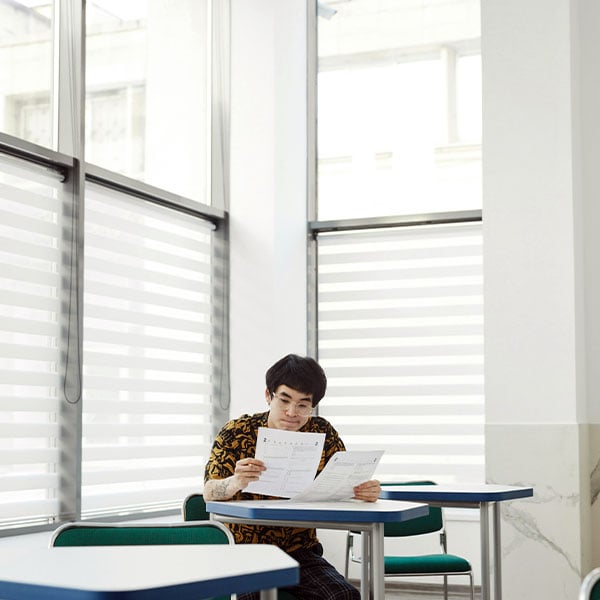To state the obvious: building positive relationships with students is important. But it is worth exploring just how important these relationships are. And crucially, how much of an impact can these relationships have on your effectiveness as a teacher?
What does research say?
In a recent study, students completed a survey that measured their perception of teaching effectiveness and their relationship with their teachers. They found that students who reported a stronger relationship with teachers were more likely to rate their teachers' practices as more adaptive and involving higher levels of cognitive engagement, problem-solving, and critical thinking (it is worth emphasising that a) this is a correlational finding, not a causal one, and b) it is their perception, not necessarily objectively true).
One theory that may help partially explain these findings is Self-Determination Theory. The theory suggests that caring relationships help fulfil the innate needs for relatedness and to feel connected to others. When relatedness needs are met in a specific context such as the classroom, individuals are more motivated to behave in adaptive ways, engage with tasks and respond creatively to challenges.
Therefore, a positive teacher-student relationship could increase the motivation of teachers, leading to the adoption of more complex, high-impact teaching practices. This, in turn, takes student learning and achievement to the next level.
Check out our blog on Self Determination Theory to learn more.
How to improve teacher-student relationships
It turns out that improving your relationship with students doesn’t just make everyone’s time at school more pleasant – it is also a key factor in enhancing the quality of your teaching. So, here are some accessible and low-cost strategies that can help you build a positive and supportive connection with your students in the classroom:
Create a psychologically safe classroom
Psychological safety refers to the belief that you will not be humiliated or judged for the thoughts you offer. When adopted in the classroom, students feel free to ask questions, engage in discussions, and express their creativity without fear of negative repercussions. This increase in comfort and engagement helps foster a more positive relationship between students and teachers.
A good way to help develop psychological safety is to promote active listening. This is where students use open body language (e.g., eye contact), ask clarifying questions, and summarise the speaker’s main points to demonstrate that they are listening.
Check out our blog for five more tips to help students become better listeners.
Consider ‘Looping’
Looping is a strategy where a teacher remains with the same group of students for more than one school year. This approach helps build a strong teacher-student relationship by creating a sense of continuity and stability for students. When they know what to expect from their teacher and are familiar with the classroom routine, it leads to increased trust, which ultimately improves learning outcomes. Recent research demonstrates the efficacy of this practice, showing that it can increase student grades.
How you greet your students
Greeting students could effectively enhance teacher-student relationships, as teachers can demonstrate an interest in each student and get to know them better on a personal level. This positive relationship makes teachers more approachable, meaning that students are more likely to ask for help, engage in class discussions and respect their teacher.
A positive greeting can take many forms: as a friendly smile or a warm welcome. Using the student's name is a great way to personalise the greeting to show that you recognise and care about them.
Use humour
Using humour, however left-field a strategy it may sound, has been found to improve teachers’ relatability. This helps breaks down the perceived barrier between teacher and student to facilitate the development of a more open and trusting relationship.
Humour also helps create a more relaxed and positive atmosphere in the classroom. When students feel comfortable and at ease, they are more likely to open up, participate in discussions, and form a connection with their teacher.
However, make sure to use humour carefully and appropriately: inappropriate humour can harm student well-being, leading to fear, anxiety and even hostility in the classroom.
Final thoughts
The latest research on teacher-student relationship has furthered our understanding of what can happen in the classroom. We now know that potentially a strong teacher-student relationship can motivate teachers to use more effective practices, which in turn boost student learning.







